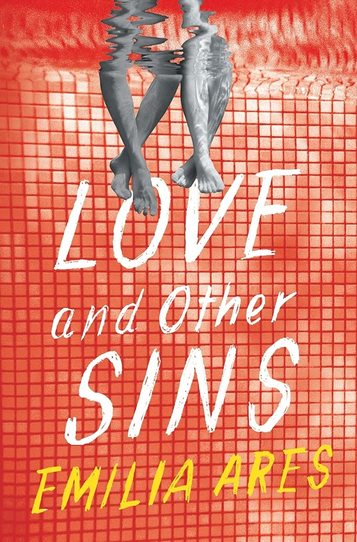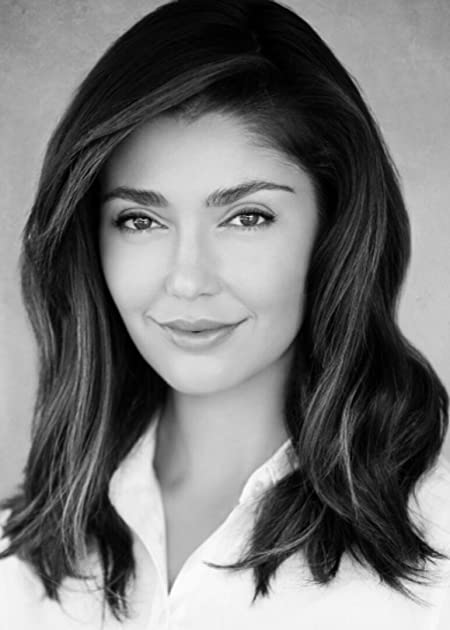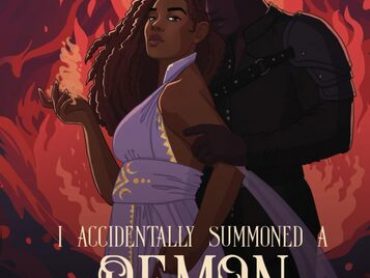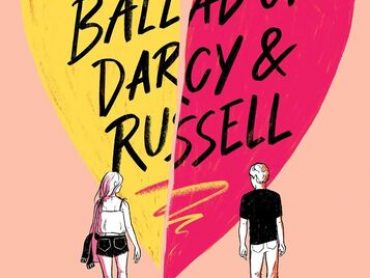Emilia Ares is an author of Love and Other Sins. Love and Other Sins is an emotional coming-of-age YA drama about family, love, violence, and the residue of abuse set against the backdrop of contemporary Los Angeles. The book explores a moving story about what it means to be young and vulnerable in today’s society. YEM was able to speak with Emilia about what inspired her to write Love and Other Sins, what the writing process is like, and who some of her favorite authors are.
Young Entertainment Mag: What made you decide that you wanted to write a book?
Emilia Ares: I was working as an actress and I was traveling to set one day working on one of my first films. Mina and Oliver’s story came to me while I was on the road to the set location. There were just glimpses at first, like flashes of memory, but after I started piecing scenes and the narrative together, crafting a backstory, the possibility of a book came to life. I wrote a chapter into my notes on my iPhone and jotted down some of what would probably happen to the characters later on in the story.
When I got back to town, I showed it to my sister who was reading a lot of YA at the time. She was the one who pushed me to keep writing. Her interest was inspirational and just the encouragement that I needed.
YEM: What inspired you to write Love and Other Sins?
Emilia: I wanted to portray the immigrant experience and the negligence in foster care that is at times overlooked. The concept and the characters of the book came to me on their own before I ever realized that I wanted to be a writer. I mean, being a “writer” was always a dream of mine, but it felt a bit out of reach. I came to this country as a young child and having to learn a language that everyone around you already knows—even as a kindergartener—leaves its mark. At least, it left its mark on me.
No matter how hard I worked, how incredibly fast I learned, how much I read, wrote and excelled, regardless of all the English Language awards I was granted and essay contests I won, after graduating with honors, after earning a degree from UCLA and after my whole life in America, I still didn’t believed myself to be worthy of something as esteemed as the title of authorship. Truly, I never thought of myself as an author or a writer until Love and Other Sins was finished, edited, and published.
YEM: With this being your debut book, what was your biggest surprise?
Emilia: The reception has been incredible, absolutely humbling. I’ve never published anything before, so, just the amount of people who took a leap of faith and read the book so far surprised me. The proportion of the ones that enjoyed it and said it was impactful to them took me by surprise as well. That’s all I ever wanted.
I said to myself that if I can affect one person in a positive way, then this whole journey was worth it. But I never expected so many people to simply pick it up and start reading and then, take that extra step and support my career by leaving such kind remarks and spreading the word.
Ultimately, not everyone will love your book and that’s okay, it’s a good thing. It means you wrote something opinionated and bold. I expected the friction, but I didn’t expect so much kindness and so much acceptance especially from Kirkus, Booklife and Foreword Reviews. I was honestly petrified, but it’s been wild. Finding my hardcovers displayed on a shelf in my local Barnes And Noble brought me to tears, it was my ultimate moment of triumph. I will never forget that moment.
YEM: What was the writing process like?
Emilia: I wrote at night and edited during the day. I wrote the first draft at the pace of about a thousand words a day. Sometimes, it would be three thousand. Sometimes, I’d take days off. When I was editing, I tried to get through about a chapter a day—more or less—depending on the chapter’s length. I did set deadlines and goals for myself. Because this was my first book, I ended up editing it about 20 times through and changing it from present tense to past tense. The entire experience was a huge learning lesson.
From now on, I will be working more efficiently so I won’t be editing huge chunks of my writing until I know that the rough outline of scenes is more cemented. Originally, I ended up throwing out a lot of scenes because the editor suggested to cut them to strengthen the narrative. Throwing out large chunks of writing can sometimes feel like a waste, but it really isn’t. All of it, the entire process is one big lesson.
YEM: Did you learn anything new about yourself during the writing process?
Emilia: I learned a lot about myself while writing. I became more patient and kind to myself after reflecting on my own journey, how I got to where I am. Sometimes, I can be unkind to myself. But now I can honestly say that I’m proud of finishing this thing. It took stamina and a sort of unwavering discipline. Nothing was harder than actually publishing it and letting it live in the world. That first week when your book is finally published feels like you’re opening your front door and letting your baby crawl out onto the street, fingers-crossed.
YEM: Do you feel like your experience in film and television acting helped you in writing your book at all?
Emilia: My training as an actor significantly impacted my writing and the crafting process for developing my characters. One of the most important ways an actor can prepare for a role is scene/character study. Ultimately, it doesn’t matter which method of acting you choose to study as long as it works for you because they all have one essential thread tying them together. “What does the character want?”
Scene study and my on-set experiences were great practice when it came time to create my characters’, Oliver and Mina’s, backstories. I would pretend they were characters I was going to play. I entered their minds the way I would when I played my characters on set. My approach might differ from most traditional writers and may very well be why I opted to write in first-person. I was documenting the moments as if they were happening to me in real-time. Later, I rewrote the novel into past tense to give the storytelling and pacing more flexibility.
Although there are many things that acting can’t help a writer do, like crafting nuanced, refreshing, and poetic prose. I think every writer would benefit considerably from practicing basic acting techniques and applying them to their characters. I noticed writers among us during my acting classes. When I asked them what they hoped to gain from our work together, they would explain that they were there to observe the difference between what works on paper, what works in rehearsal, and what stops a scene from progressing.
YEM: Who are some of your favorite authors?
Emilia: Jodi Picoult is definitely an inspiration. Her writing is beautiful in a gut-punch, rip your heart out, stomp on it and shove it back into your chest kind of way. So, so good.
I love anything Jeff Zentner writes, his newest novel, In the Wild Light, became an instant favorite.
But some of the first books and authors who inspired my love for storytelling were, The Chronicles of Narnia by C.S. Lewis, Speak by Laurie Halse Anderson, The Lovely Bones by Alice Sebold, Bridge to Terabithia by Katherine Paterson.
YEM: What do you hope your readers take away from reading Love and Other Sins?
Emilia: In crafting Mina and Oliver’s story, I rediscovered the madness that ignites when separate worlds of two vastly different people collide for the first time. It was a stark reminder that yearning to be loved distorts previously unwavering principles. Writing this series reminded me that regardless of the prejudices and microaggressions accompanying the complication of identifying as “other,” there is a deep-rooted significance in preserving your unique identity. Ultimately, I want my readers to feel like they’re not alone.
YEM: Do you have any advice for someone who wants to start writing?
Emilia: It’s probably the same advice I give to people who are interested in pursuing acting. Just try to make sure that whatever you do, you do from your heart. I believe everyone has a story to tell. Try to find your truth and bring it to the world. There will be others who share your experience and will value the representation of themselves in your stories. It’s a lot of hard work—writing a book—but consistency, repetition and discipline outlast natural talent, so keep going and don’t give up. Also, read a lot. Especially books in the genre you want to write. When you’re reading, ask yourself: Why do I like this? Why does this work? Then, try to do that when you tell your story. Easier said than done, I know.
YEM: Are any of your characters in Love and Other Sins inspired by people in your own life?
Emilia: I come up with my characters by mixing together the parts of people I find interesting. They are usually based on people I’ve come across in my life that stuck out or have made an impact on me. My characters are inspired by a hodge-podge of personalities and never just one person.
YEM: Who was the first person to read your book?
Emilia: My sister, Sofia, was the first to read the origins of Love and Other Sins. It was very rough and raw when she read it. She encouraged me to keep writing and to make it a book. She’s a songwriter. I consider songwriters to be short form storytellers, so I knew she’d appreciate the vulnerability of sharing a piece of writing with someone. She told me that she loved it and couldn’t wait for more. I don’t think Love and Other Sins would have existed without her encouragement.
YEM: Do you hope to write more books in the future?
Emilia: I’m currently working on Love and Other Sins Book 2- Love and Other Cages. Mina’s and Oliver’s story continues. We leave things off somewhat resolved between the two of them but there’s a shark in the water and the fin pokes out just as we end book 1 of the series. So, book 2 will explore what that shark personifies and what this danger will mean for Mina and Oliver’s relationship. There will more mature content as we move into the adult world and away from high school. Mina must navigate some very turbulent territory as she struggles to keep her loved ones safe and herself alive.





